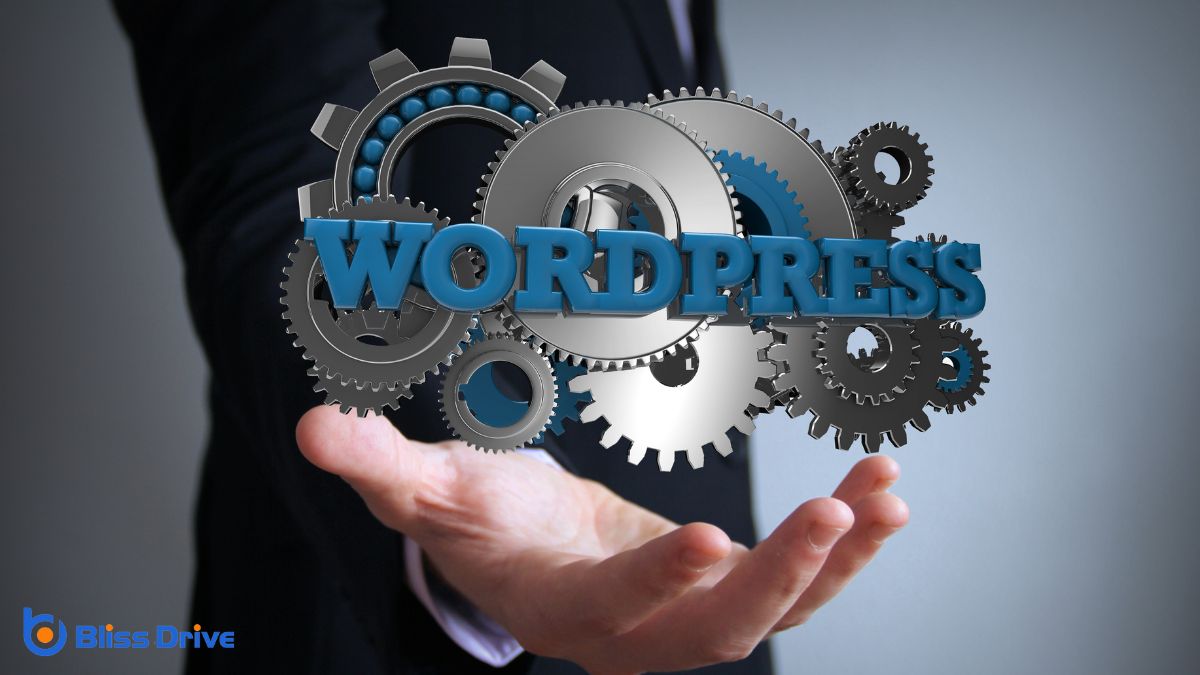Learn More About Us

Let's explore whether WordPress or Wix is the superior choice for building a website. We'll consider user-friendliness, design flexibility, and more. WordPress offers extensive customization, but it's not without challenges. Meanwhile, Wix simplifies the process with its intuitive interface. The decision ultimately depends on individual needs and expertise. Which platform aligns better with your website goals? Let's find out.

When we compare WordPress and Wix, how do they stack up regarding user-friendliness and learning curve?
Wix makes it easy for beginners because of its drag-and-drop functionality. We find it intuitive; users can quickly build a website without technical skills. It offers a streamlined interface that guides us through the process with minimal fuss.
In contrast, WordPress offers more complexity. It requires a steeper learning curve, especially for those unfamiliar with web development. However, it becomes manageable with some effort and a willingness to learn.
We've access to countless resources and tutorials online that help us improve our skills.
Ultimately, choosing between them depends on our comfort level with technology and willingness to invest time in learning the platform.
When we consider design flexibility and customization, both WordPress and Wix offer unique advantages.
With WordPress, we've a vast array of theme options and the ability to integrate custom code for a more tailored experience.
On the other hand, Wix shines with its intuitive drag-and-drop interface, making it easy for us to create visually appealing sites without coding expertise.
Exploring the theme options variety, we find that both WordPress and Wix offer compelling design flexibility and customization features, yet they cater to different needs.
With WordPress, we're given thousands of themes, both free and premium, allowing us to tailor our site to specific aesthetics and functionalities. Its vast library guarantees we can find a theme that matches our precise vision, enhancing the uniqueness of our website.
On the other hand, Wix provides a more streamlined selection of templates, focusing on ease of use and intuitive design tools.
This means we can quickly get our site up and running with a professional look. While Wix may offer fewer themes, it compensates by allowing us to easily tweak and adjust layouts to suit our needs.
While both WordPress and Wix offer design flexibility, WordPress truly excels in custom code integration, providing unparalleled control over our site's features and appearance.
By allowing us to explore the code, WordPress gives us the freedom to tailor our website exactly to our needs. This capability is invaluable for users who want to go beyond predefined templates and create something unique.
Here’s how WordPress stands out in custom code integration:
WordPress empowers us to build something truly personalized.
How does drag-and-drop functionality simplify website design? It allows us to create and customize our webpages with ease. Instead of writing complex code, we can simply click, drag, and drop elements like text boxes, images, and buttons directly onto our page.
This intuitive process not only saves time but also empowers us to visualize and adjust our design in real-time.
In Wix, the drag-and-drop interface is exceptionally user-friendly, offering a wide range of templates and customization options. We can experiment with layouts and styles quickly, making it ideal for those who want a hands-on approach without technical barriers.
While WordPress offers drag-and-drop through plugins and themes, Wix's built-in system is often more accessible for beginners seeking design flexibility.
Let's look at how the pricing and cost structure of WordPress and Wix compare, focusing on free plan limitations, premium plan features, and additional service costs.
Both platforms offer free plans, but we'll find certain restrictions that might prompt us to evaluate their premium options.
As we weigh these options, it's important to factor in any extra costs for services like domain registration and e-commerce features.
When comparing the free plans of WordPress and Wix, how do they stack up against each other? Both platforms offer free options, but they come with certain limitations. Let’s break it down:
Understanding these limitations helps us choose the platform that aligns better with our needs, knowing what sacrifices come with a free plan.
While the free plans of WordPress and Wix come with limitations, exploring their premium plans reveals enhanced features tailored for more serious users.
WordPress offers a range of pricing tiers, allowing us to choose plans that include custom domains, increased storage, and advanced design customization. Their higher-tier plans provide more powerful e-commerce tools and integrations suitable for growing businesses.
On the other hand, Wix's premium plans focus on user-friendly website building with features such as increased bandwidth, ad removal, and professional logo creation.
Their higher-end plans also offer advanced e-commerce capabilities and marketing tools.
Although both WordPress and Wix offer compelling features in their premium plans, it’s vital to take into account the additional service costs that can impact our overall budget.
Understanding these potential expenses helps us make informed choices.
Considering these costs guarantees that we choose the right platform for our needs.
Exploring the SEO capabilities and performance of WordPress and Wix, we discover a landscape where each platform has its strengths.
WordPress is renowned for its robust SEO features, primarily due to its open-source nature and extensive plugin ecosystem. It offers advanced customization, allowing us to fine-tune every aspect of our site's SEO. With WordPress, we can access tools that enhance metadataData that provides information about other data, such as its source, format, and usage., URLs, and overall site architecture.
On the other hand, Wix provides a more user-friendly approach. It offers built-in SEO tools that guide us through optimization without needing technical skills.
Wix's streamlined interface is perfect for those who want straightforward SEO without diving too deep. While WordPress gives us more control, Wix simplifies the process, making SEO accessible for everyone.
Having explored the SEO capabilities of WordPress and Wix, we now turn our attention to how these platforms handle plugin and app integration.
WordPress impresses with its vast library, offering thousands of plugins for almost any feature we can imagine. This flexibility lets us customize our sites to fit specific needs.
Wix, on the other hand, provides a more controlled environment with its App Market, which is easy to use but limited compared to WordPress.
Here’s what we should consider:
When it comes to e-commerce features and tools, both WordPress and Wix offer robust solutions, but they cater to different needs.
WordPress gives us extensive flexibility through its WooCommerce plugin. It's ideal for those who want to customize every aspect of their online store, offering limitless potential with themes and plugins. However, it requires more technical knowledge and setup time.
Wix, on the other hand, provides a more user-friendly approach with its built-in e-commerce tools. It's perfect for beginners looking for simplicity and quick setup. With Wix, we can easily manage products, payments, and shipping without diving into complex configurations.
Ultimately, our choice depends on our specific needs: control and customization with WordPress or convenience and ease with Wix.
Customer supportServices provided to assist customers before, during, and after a purchase to ensure a positive expe... and resources are essential factors in choosing between WordPress and Wix, especially for those of us who might need assistance along the way.
Let's look at what each platform offers to help us navigate any challenges:
Both platforms offer valuable resources, but our choice might depend on whether we prefer direct support or a wealth of community-driven resources.
Understanding these differences can guide us to a platform that meets our support needs.

While support resources help us tackle immediate challenges, we also need to think long-term about how our chosen platform can grow with us.
When considering scalability, WordPress stands out due to its open-source nature and vast customization potential. We can add numerous plugins and themes, adapting our site to meet increasing demands. It’s a flexible solution for those who foresee considerable growth.
On the other hand, Wix offers ease of use, but it can be limiting as our needs evolve. It caters more to small to medium websites without the extensive customization options of WordPress.
If we plan to expand considerably, Wix might require us to switch platforms later.
Ultimately, our choice hinges on current needs and how we envision future growth.
In our exploration of WordPress and Wix, it's clear that the best choice depends on your needs and comfort with technology. If you value extensive customization and scalability, WordPress is a strong contender, albeit with a steeper learning curve. On the other hand, Wix's user-friendly drag-and-drop interface is perfect for beginners seeking simplicity. Ultimately, the decision comes down to what you prioritize in a website builder, be it ease of use, flexibility, or growth potential. Choose what aligns best with your goals.
